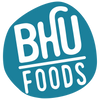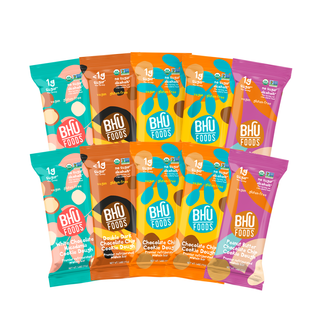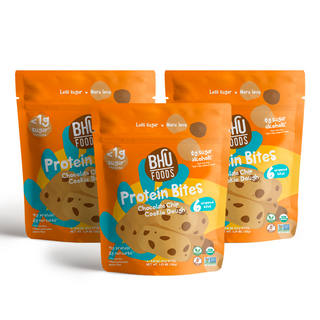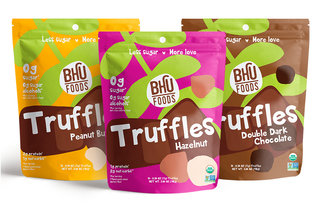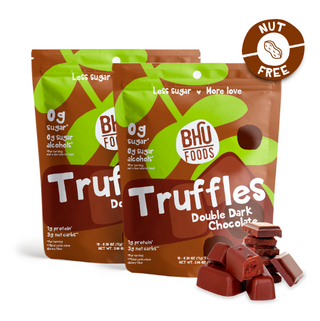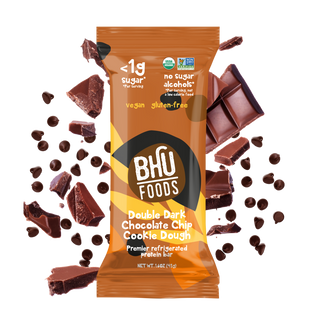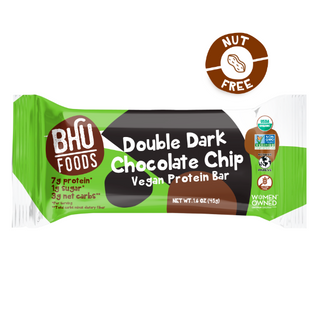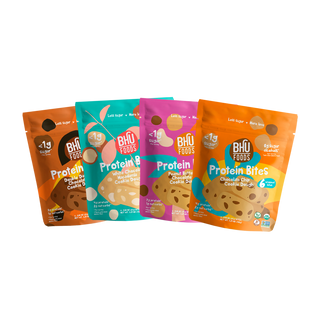
The Best Sources Of Probiotics And Prebiotics To Eat
When it comes to gut health, it’s all about the balance and ratio of bacteria within it, and while the body contains bacteria that we can’t control, we are able to increase the concentration of beneficial, gut-healthy bacteria through the foods and drinks we consume in the day. By feeding our gut the right sources of healthy bacteria, we can better strengthen our gut health and keep our bodies more balanced, regular and well.
Plus, the gut is associated with the immune system, digestive system and even the brain, where a healthy, happy gut makes for higher immunity to fend off illnesses and the common cold, smooth digestion and regular bowels, improved mood and overall well-being. And while the body needs a host of vitamins and minerals, as well as protein and heart-healthy, filling fats from unsaturated fat sources, for the most part, probiotics happen to be especially critical for improving gut health and maintaining bacterial balance within the body’s microbiome.
And in addition to probiotics, prebiotics also benefit gut health, since they’re food for probiotics to in turn help them work more efficiently. You can definitely supplement with a probiotic daily, such as with Culturelle or Align, which are two of my favorite brands and the two I use, you can also just get probiotics through diet alone too. If you are supplementing, look for probiotics that offer a variety of bacterial strains to promote gut health as a well-rounded, effective option.
Prebiotics are easy to find in foods alone, and even if you do supplement with probiotics, eating probiotic-rich foods is not only beneficial for getting in more healthy bacteria strains through food sources, but also for getting an abundance of other essential vitamins and minerals, as well as perhaps protein, fiber and good fats. These are the top sources to choose from.
Probiotics for Gut Health
Fermented Vegetables
Fermentation can result in more healthy bacteria, making fermented foods like vegetables and fermented beverages (they’ll be super fizzy, which you’ll notice on the tongue pretty quickly!) good sources of probiotics to better the gut and overall health and immune system. Sauerkraut is one of the most popular options, to enjoy on a veggie dog or plant-based burger (if you eat meat, a regular dog or patty, if preferred), along with kimchi. And you can also DIY your fermented veggies at home, where you can make your own medley and store for easy snacking.
Sourdough Bread
While whole-grain or wheat bread tends to get the most love as being a high-fiber bread option, meaning the net grams of carbs count is lower and your body stays fuller for longer, sourdough offers probiotic benefits, which the other grain and seed loaves do not. So, use sourdough for a quick lunch, such as a toasted sourdough sandwich with hummus, tomatoes and spinach or kale, dairy-free cheese and bell peppers, or as a base for spreading creamy avocado or nut butter for a snack.
Miso Soup
Fill up faster by adding a small, broth-based soup to your meal as an appetizer, since it’s light enough to keep your appetite high enough for your main meal, but also high in water content to fill your stomach up a tad before you dig into that next course. Miso is made from fermented soy-bean paste, and it’s also rich in B vitamins and antioxidants, the former to stabilize energy and help with various bodily functions, and the latter to protect your heart and brain, as well as speed muscle recovery.
Sour Pickles
Another fermented vegetable pick, these pickles are naturally fermented, so they are free of vinegar, which can be used in the fermentation process. With just sea salt and water, this combination feeds the sour pickles, thus enhancing its rich supply of gut-healthy bacteria. Eat these pickles when you want a crunchy, salty snack with a dose of probiotic power.
Prebiotics
Asparagus
This green vegetable is high in prebiotics, so it’ll nourish probiotics to help them perform better and maximize their gut-promoting power. You can eat asparagus chopped, in a salad or soup, or put it on the grill for an easy side. You can also use it in stir-fry meals with tofu and additional veggies over a bed of cauliflower rice. And pair with that miso soup for double the benefits!
Bananas
Bananas are touted for their benefits around workouts and recovery, since they are high in potassium, an electrolyte that helps keep hydration in check, as well as fast-acting carbohydrates to fuel a workout and some fiber to hold you over for longer too. Enjoy with a squeeze-pack of nut butter and crushed almonds for some crunch and healthy fat post-workout. Or simply grab a banana and a protein bar if you’re pressed for time and rushing out the door.
Artichokes
This major powerhouse has both probiotic and prebiotic properties, so it’s one of the best foods to eat as a two-in-one dose. Plus, they taste great in a variety of ways: as a topper for salad, blended into a dip or sauce, prepared simply roasted, as part of a string of items for grilled cubed tofu and vegetables for kabobs and more. Plus, they have lots of fiber to keep you satiated and regular, along with antioxidants too.
Flaxseed
These tiny seeds are packed with prebiotic power, as well as fats and antioxidants that lower inflammation in the body and thus the risk of disease and illness, such as heart and brain disease, which rises naturally as you age. Its fat source is omega-3 based, in the form of plant-based, brain health boosting ALA, to lower risk of brain disease. Flaxseed is the highest plant option with 7 grams of ALA fat content per tablespoon.
